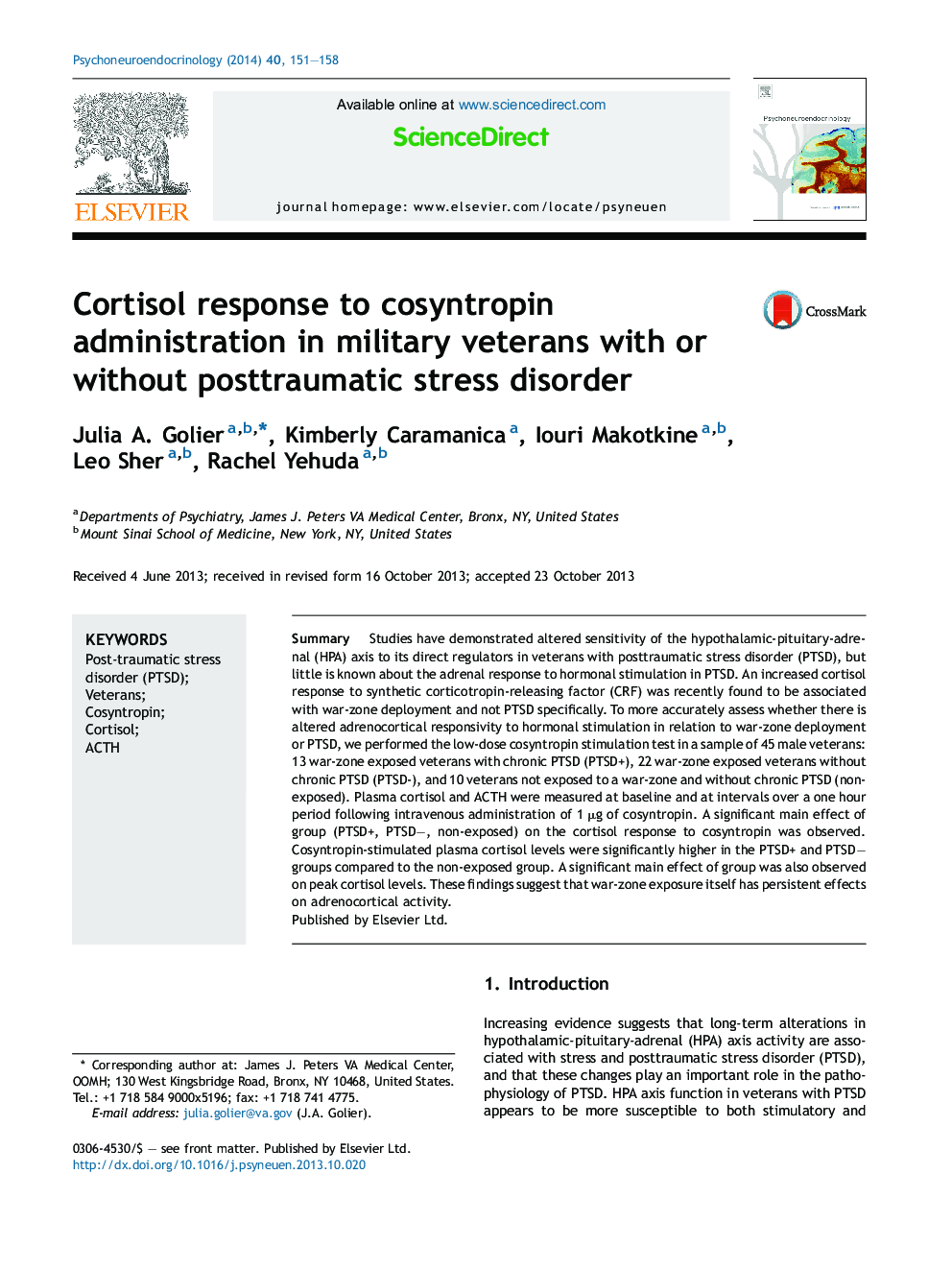| کد مقاله | کد نشریه | سال انتشار | مقاله انگلیسی | نسخه تمام متن |
|---|---|---|---|---|
| 335774 | 547025 | 2014 | 8 صفحه PDF | دانلود رایگان |
SummaryStudies have demonstrated altered sensitivity of the hypothalamic-pituitary-adrenal (HPA) axis to its direct regulators in veterans with posttraumatic stress disorder (PTSD), but little is known about the adrenal response to hormonal stimulation in PTSD. An increased cortisol response to synthetic corticotropin-releasing factor (CRF) was recently found to be associated with war-zone deployment and not PTSD specifically. To more accurately assess whether there is altered adrenocortical responsivity to hormonal stimulation in relation to war-zone deployment or PTSD, we performed the low-dose cosyntropin stimulation test in a sample of 45 male veterans: 13 war-zone exposed veterans with chronic PTSD (PTSD+), 22 war-zone exposed veterans without chronic PTSD (PTSD-), and 10 veterans not exposed to a war-zone and without chronic PTSD (non-exposed). Plasma cortisol and ACTH were measured at baseline and at intervals over a one hour period following intravenous administration of 1 μg of cosyntropin. A significant main effect of group (PTSD+, PTSD−, non-exposed) on the cortisol response to cosyntropin was observed. Cosyntropin-stimulated plasma cortisol levels were significantly higher in the PTSD+ and PTSD− groups compared to the non-exposed group. A significant main effect of group was also observed on peak cortisol levels. These findings suggest that war-zone exposure itself has persistent effects on adrenocortical activity.
Journal: Psychoneuroendocrinology - Volume 40, February 2014, Pages 151–158
